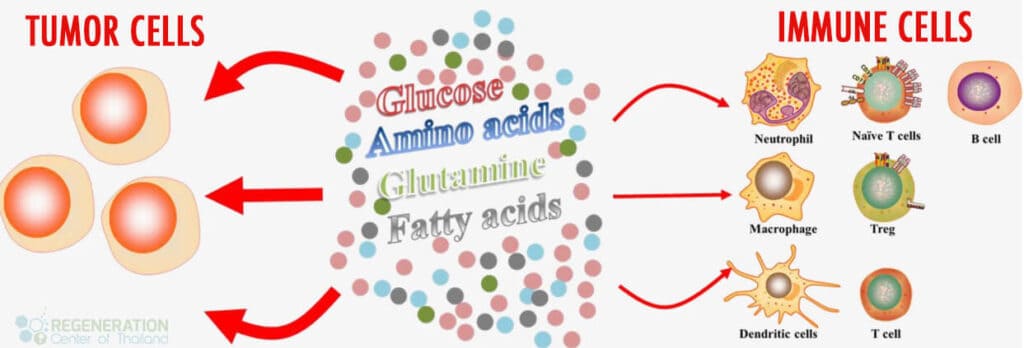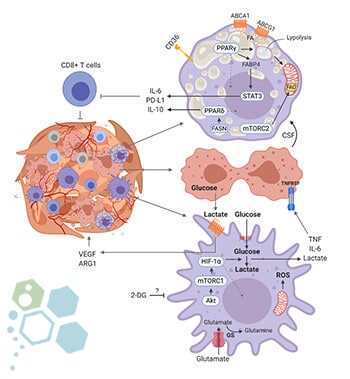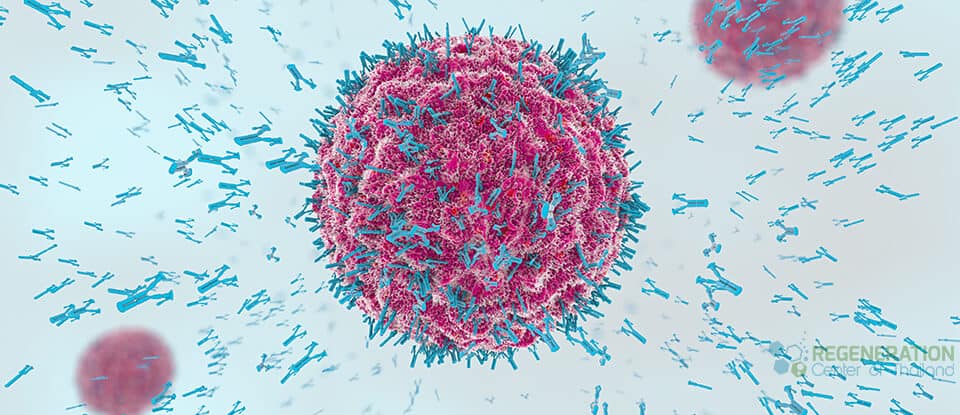Cancer patients with abnormal metabolism apoptosis evasion are considered to be hallmarks of many types of cancers. Cancer research has shown that cancer stem cells are often the key drivers of tumor formation, cancer progression, and recurrences. To successfully defeat malignant cells, therapies must eliminate cells that are resistant to apoptosis.
Molecular Cancer Therapies
Cancer stem cells or “CSC” are unipotent cells that are found within a tumor cell mass. These cells are very resistant to traditional chemotherapies and play an integral role in the recurrence of cancers after chemotherapy. CSCs can change their metabolism to fill their biosynthetic requirements. These cells are very dependent on aerobic glycolysis for energy production and are associated with rapid increases in the synthesis of fatty acids and the rate at which glutamine is utilized. The Regeneration Center has found consistent evidence that shows therapeutic resistance to cancer treatments can increase due to glutaminolysis, fatty acid synthesis, peptide bonding & dysregulation in glucose metabolism.

Cancer cells can propagate their lethal effects to survive after chemo by optimizing their metabolic requirements to ensure evasion from the host immune system. Current evidence shows that cancer stem cells can rapidly metabolize glutamine to grow because glutamine provides energy and vital precursors needed to synthesize lipids, proteins, and nucleic acids. CSC can also control some cell signaling pathways that control the rapid proliferation of cancer cells.
Targeting the metabolic regulators
 In a recent breakthrough, we have discovered that a small number of cancer stem cells are responsible for most of the spread and growth of cancers. Cancer stem cells are difficult to target as they can exist in multiple states and change their form between dormant and rapidly growing states. This cell plasticity is what helps cancers to multiply and spread rapidly. Some traditional targeted cancer therapies can work for some time, but the Cancer can mutate and eventually becomes resistant. This is why we use multiple types of stem cell therapies to fight multiple forms of cancer cells. We believe that the metabolic system ultimately controls these changes, making it the ideal vector to attack the malignant cells.
In a recent breakthrough, we have discovered that a small number of cancer stem cells are responsible for most of the spread and growth of cancers. Cancer stem cells are difficult to target as they can exist in multiple states and change their form between dormant and rapidly growing states. This cell plasticity is what helps cancers to multiply and spread rapidly. Some traditional targeted cancer therapies can work for some time, but the Cancer can mutate and eventually becomes resistant. This is why we use multiple types of stem cell therapies to fight multiple forms of cancer cells. We believe that the metabolic system ultimately controls these changes, making it the ideal vector to attack the malignant cells.
All cells in the human body get energy through the mitochondria, dependent on glucose (sugar) and oxygen. Cancer stem cells can draw energy from either source. In a dormant state, cancer cells use glucose, but in a proliferative state, it requires more oxygen. The ideal way to treat cancer cells is to block mitochondria and block the path used for glucose uptake.
Targeting the tumor microenvironment
Instead of using toxic chemicals to kill cancer cells, it might be possible to use its metabolism to kill Cancer. The immune system is regulated by our metabolism, which suggests that the possibility of combining immunotherapy with anti-cancer cell therapies can be effective in eliminating the progression of some types of cancers, including pancreatic cancer, liver cancer, lung cancer, and prostate cancer.
Successful elimination of Cancer today requires an approach that can affect CSCs and differentiated cancer cells. Conventional therapies that can target rapidly proliferating differentiated cancer cells include radiotherapy, chemotherapy, NK Cells and cancer immunotherapy. This modern cancer treatment can help tumors shrink but might not be able to prevent the recurrence of the tumor.
For this reason, a combination treatment that can target proliferating cancer cells and dormant cancer cells is ideal. An essential component for combined cancer therapy is identifying surface markers that can distinguish cells between nontumorigenic cells & tumorigenic cells.
Understanding Mitochondrial Translation & CSC Biogenesis
Therapeutic strategies for cancer cells include targeting the cellular pathways involved in the cell self-renewal process & cellular differentiation. A reversal of the tumor metabolism to “normal” from “malignant” can help stop the growth of cancer cells, create tumor regression, and induce apoptosis of cancer cells, thus reducing the risk of any recurrence of the tumor.

